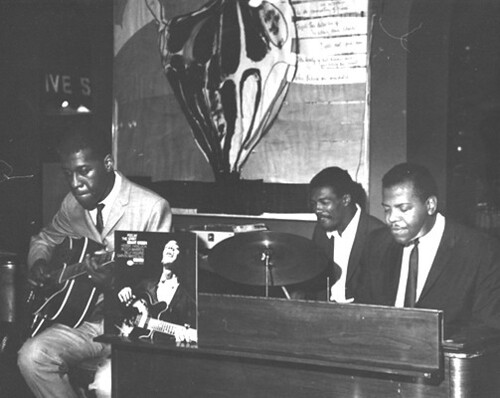Return of the Prodigal Son is a soul jazz track from 1969, not long after Joe Lee drew with Sly & The Family Stone in a national TV talent show. Sly Stone signed to Columbia and enjoyed huge commercial success. Joe Lee recorded for Columbia but they just sat on the tapes. A couple of singles appeared and disappeared (the first recording of He Ain't Heavy . . . He's My My Brother). The Return of the Prodigal Son is a big budget production (a nine piece band including Kenny Burrell and Kenny Barron) but first saw the light of day in Japan. Is this one of the Columbia tapes that they handed over to Joe Lee? Are there more out there?
How Deep Is The Ocean was recorded in Italy in 2008. Shows that Joe could still tell a story and move people with his voice.
Feelin' Good is from the album of the same name. A great session with Kirk Lightsey (piano), Steve Watts (bass), Julian Siegel (tenor), Dave Wickens (drums). Recorded in 2000 is shows Joe Lee on top form with a great band, caught at the end of a UK tour. This is Joe Lee at his most joyful and positive.
Jazz Ain't Nothin' But Soul was recorded is 1972 as a live radio concert at Columbia University. When is was released two years later (on the Livin' High on Nickels and Dimes LP) it became a hit for Oblivion records. It describes jazz thus:
Jazz is makin' do with taters and grits
Standing up each time you get hit
Jazz ain't nothin' but soul
Jazz is livin' high on nickels and dimes
Telling folks what's on my mind
Jazz ain't nothin' but soul
Not financially rewarding but a kind of truth. Joe would have established his NYC loft (The Ladies Fort) at this time and created many opportunities for himself and other musicians to entertain an audience. This song is another positive message from Joe.
You can hear the complete album here.
I Love You is from a 1981 session with guitarist Jimmy Ponder. Just the two of them. His voice is beautiful and the two musicians complement each other perfectly.
Goin' To Chicago (from Feelin' Good) is a straightforward blues. Joe Lee never considered himself a blues singer but he could certainly do justice to the blues, recalling blues shouters like Big Joe Turner.
Home in the Country (from Feelin' Good) was written by trumpet player and singer Kenny Dorham (KD). Joe Lee used to hand out in Tompkins Square Park with KD. Joe Lee was a country boy, raised a farm in Oklahoma, and this song talks about wanting to leave the city and get back to a home in the country. The story is dramatically told by Joe Lee with Kirk Lightsey:
The city's bright, bright like diamonds and hard like glittering stone
Ain't got some sweet place I can call my home
Your hair is soft, feels so fine, let's get out of New York City while we got time
I want a home in the country. Won't you come there with me.
Come to the country
Thanks to Seahaven FM for the opportunity to put some of Joe Lee's music on air and on the internet.




